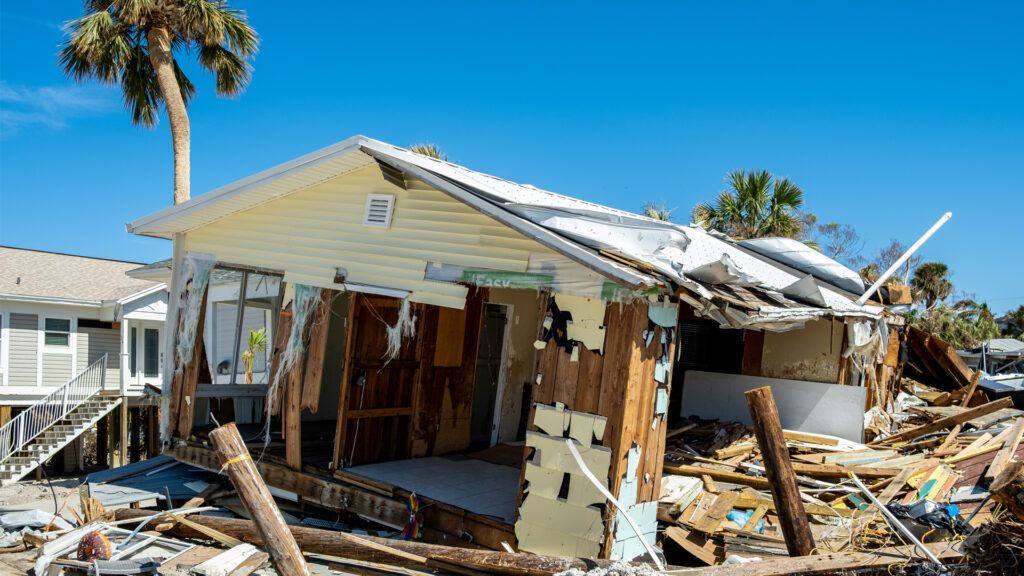By the Palm Beach Post Editorial Board
Some problems are just hard, no way around it. That doesn’t mean we shouldn’t confront them with the most logical solutions we can muster, removing politics from the equation to ease suffering as quickly as possible. Perhaps the most intractable problem facing Florida residents these days is how to keep insurance rates from pricing us out of our homes. But in this case, “as quickly as possible” has come and gone with little relief for most of us.
Soaring premiums, combined with elevated mortgage rates, put financial pressure on condo and homeowners as well as renters, year after year. According to data provided by the state’s insurer of last resort, Citizens Property Insurance Corp., premiums from private insurance companies cumulatively rose 161% between 2013 and 2023.
The state responded in 2019 and 2022, with legislative “reforms” that largely did the insurance industry’s bidding. Florida lawmakers waving the tort reform banner made it next to impossible for already-beleaguered consumers to sue companies reluctant to live up to policies’ promises. The result? The companies are doing better now; consumers, not so much. Premiums continue to soar. This, amid the backdrop of climate projections that call for an ever-more-powerful lineup of hurricanes to come our way.
We urge Gov. Ron DeSantis, Chief Financial Officer Jimmy Patronis and Florida lawmakers to work more aggressively now on behalf of their human constituents, not just their corporate ones.

Our editorial board and its panel of community advisers met last week with Tim Cerio, who is president, CEO and executive director of Citizens. He’s not responsible for the private insurers and their rates but has perspective on the market; Citizens is a state arm that offers policies to the now 1.2 million homeowners the for-profit insurers consider too risky to cover. That’s $455 billion in exposure the state and its taxpayers have taken on – more than half the total taken on by all states’ residual insurers nationwide, and more than double what the next biggest state insurer shoulders (California, $210 billion).
In a frank, hour-long discussion, Cerio talked us off the ledge, or at least partway back toward the window sill. There’s good news to be had but not enough to warrant confidence for a turnaround in the offing.
The good news from Cerio’s perspective is that making it harder to sue insurers has made the big national carriers more likely to do business in the state. A cottage industry of lawyers with questionable tactics had teamed with roofers and other contractors to file so many suits, they drove some insurers out of the state and others out of business, he said. The problem was especially severe in Miami-Dade County, which, though it was barely touched by Hurricane Ian in 2022, has more pending Ian insurance lawsuits than Collier, Charlotte and Lee counties combined, which the Cat 3 ‘cane punched on the nose.
In Cerio’s view the legislation eased the number of new filings and improved the comfort level of reinsurance companies – who insure the insurers against hurricane claims – to ease pressure off Florida rate increases, which in turn helps the insurers and could help customers. There have been slight reductions in some companies’ rate request filings with the state this year, Cerio said.
The bad news is that the premiums you pay are based on the value of your house, and home values and repair and replacement costs. In Palm Beach County, those costs have risen dramatically in recent years. So, not only have premiums risen but, if the house you bought for $400,000 a few years ago is now worth $700,000, you now have to pay for a lot more insurance. How do you fix that?
The answer is the same as with many complex, modern dilemmas, whether climate change, immigration or property insurance: It takes an all-of-the-above approach. The powers that be need to provide insurers relief from fraud but also buttress consumers’ ability to stand up to dishonest insurers. No doubt, strengthening home construction and code enforcement also would help depress insurance costs, as would coastal anti-flooding and other climate resilience and watershed restoration measures. And in all cases, local, state and federal governments need to see this as a mutual problem and to coordinate programs and legislation.
The pain of rising premiums becomes more acute by the month. Florida needs to mount a concerted effort to address it.
This opinion piece was originally published by the Palm Beach Post, which is a media partner of The Invading Sea.
If you are interested in submitting an opinion piece to The Invading Sea, email Editor Nathan Crabbe at ncrabbe@fau.edu. Sign up for The Invading Sea newsletter by visiting here.



